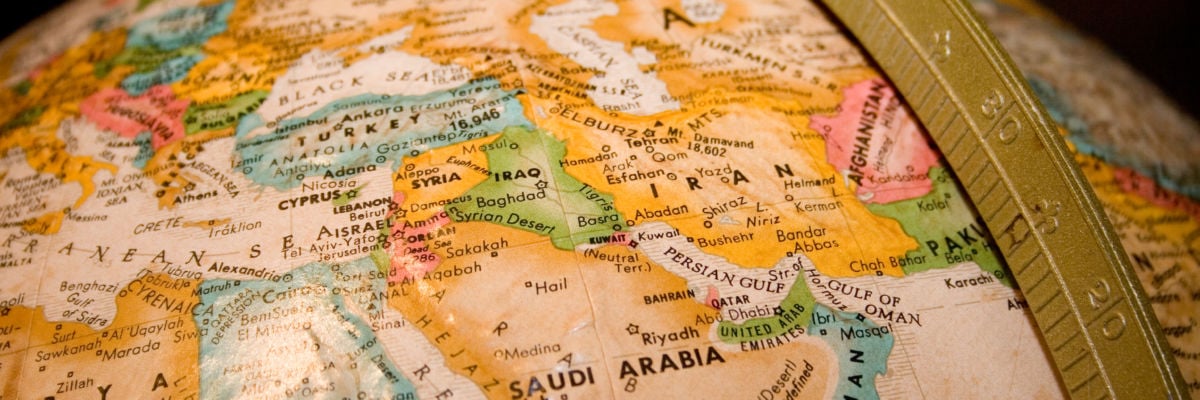
Earlier this year, Open Doors USA issued its annual report on religious persecution around the world. The most difficult and dangerous place for Christians in 2022 is now Afghanistan. That’s not perhaps a surprise, given that Afghanistan is ruled by an Islamic Sunni fundamentalist group, the Taliban, who have made a name for themselves antagonizing religious minorities.
Perhaps more surprising and arresting is the fact that seven out of the top ten countries on Open Doors USA’s 2022 World Watch List have a significant Muslim population and a level of Islamic radicalism. In truth, there are very few Muslim countries—or countries with large Muslim populations—where Christians can avoid intimidation, harassment, or violence. For example, almost 80 percent of all Christians killed in 2021 were in Nigeria (about 53 percent of which is Muslim), and another 11 percent were killed Pakistan, which is about 95 percent Muslim.
In practically every Muslim-majority country—from Morocco on the northwest coast of Africa to supposedly secular and democratic Indonesia in Southeast Asia—blasphemy laws on the books deter criticism of Islam and are often used as weapons against Christian minorities. A few years ago, Basuki Tjahaja Purnama, the Christian governor of Jakarta, Indonesia, was found guilty of blasphemy and sentenced to prison time. The list of countries in which apostasy from Islam (and only Islam) is a capital offense includes Sudan, Afghanistan, Brunei, Mauritania, Qatar, Saudi Arabia, the United Arab Emirates, and Yemen. These are all self-identifying Muslim nations.
In other words, Christianity seems to suffer the most under Islam (though secular totalitarian regimes like China and North Korea give Islam a run for its money).
I have some personal familiarity with the sad state of Christians living in Muslim countries. For several years while living in Thailand, I befriended several Pakistani Catholic families who had fled persecution in their country and were seeking refugee status from the United Nations. These Catholics had endured it all: threats, intimidation, harassment, and physical violence. Some had female relatives who had been abducted and forcibly married to Muslim men. (Almost 1,000 of these cases happen in Pakistan every year.)
What is it about Islam that is so antagonistic toward Christianity? In one sense, it is in the lifeblood of the Islamic tradition. As Notre Dame professor Gabriel Said Reynolds explains in his book The Qur’an and the Bible, Muslims’ holy book draws extensively on Holy Scripture, both Old and New Testaments. Yet it is not a friendly theological encounter—rather, Islam from its beginning dramatically changed the story of Christianity, explicitly rejecting the doctrine of the Trinity (see Quran 4:171) and asserting that Jesus was not actually crucified, but only appeared to be (v. 157).
Why this is important is explained in The Crucifix on Mecca’s Front Porch: A Christian’s Companion for the Study of Islam by David Pinault. For Muslims, there is no greater shame or dishonor than the proposition that God would condescend to creation in all its finitude and filthiness, become human, and be crucified. Pinault notes that to make such a claim is equivalent to “claiming a prophet is majnun,” or possessed by a jinn, or demon. Muslims perceive the cross of Christ as a sign of shame, not only derided in the Quran, but regularly understood in Muslim tradition as a sign of disorder.
Moreover, consider history, which Muslims understand as profoundly and immediately relevant. Catholic historian Robert Louis Wilken observes in his First Thousand Years that within one hundred years of the founding of Islam, a majority of Christians in the entire world lived under Muslim rulers. From Egypt to Spain, Syria to what is today Iran, Islam became the predominant religion, supplanting centuries of Christian influence, if not hegemony.
Over the ensuing centuries, Muslim rulers exerted various social and economic pressures on historic Christian communities. As Christian C. Sahner explains in Christian Martyrs Under Islam: Religious Violence and the Making of the Muslim World, impoverished Christian slaves had little to lose by converting to Islam. Laws regarding marriage also favored Islam: Muslim men could marry Christian women, but Christian men were prohibited from marrying Muslim women. If a husband converted to Islam, the children would be raised Muslim, which “spelled the disappearance of Christianity from the family tree in the long term, probably within a generation or two,” writes Sahner. Though it was easy to join Islam, it “became exceptionally hard to leave it,” in large part because of Quranic injunctions against apostasy, which within a few centuries became normative across the Muslim world.
Wherever Islam has become the dominant religious tradition, Christians have fared quite poorly. With a few exceptions—the reconquista of the Iberian Peninsula and independence movements in the Balkans and Greece—Christians pushing back against this aggressive religio-political coercion is decidedly rare. For the sizable Christian communities that remain, life is painful and dangerous. Just ask Egypt’s Copts or the Catholic and Orthodox communities that barely held on in Iraq and Syria under the Islamic State.
In sum, we can identify three salient reasons for the dreadful plight of Christians in the Muslim world. The first is theological: the doctrinal heart of Christianity—the Trinity, the Incarnation, and the crucifixion—are viewed with disdain by the Quran and Muslim clerics, who see these doctrines as blasphemous and insulting. The second is historical: since its inception, Islam has been in conflict with Christianity, conquering predominantly Christian lands and Islamizing them, converting local populations through various coercive measures and martyring resisters. And the third is political: Muslim-majority nations in the present day seek to purify their lands of wrong religion (the Urdu word pak as in Pakistan means “pure”) through various laws and policies that make life egregiously difficult for Christian minority populations.
This raises uncomfortable questions for both Christians and Muslims. Can the two religions co-exist? Certainly, the West has been a test case. It’s a somewhat positive story: in historically Christian nations like America, Muslims have done quite well, succeeding in every imaginable profession and even entering politics (though we must also acknowledge radicalization of some Muslim youths, who have committed terrorist attacks in the United States, the United Kingdom, and France).
Unfortunately, the reverse is rarely the case—Christians in Muslim-majority countries are usually poorer than their Muslim neighbors, and they are often excluded into ghettoes, as is the case for some of my Pakistani Catholic friends who have now returned home. In many cases, Christians’ freedom to practice their religion is greatly circumscribed, and there is certainly no permitted evangelization toward Muslims (no Catholic Answers welcome here!). This is reason to pray for our brothers and sisters in Christ in Muslim-majority countries, and perhaps to entreat our leaders to address the injustices they suffer. God knows they need prayers and entreaties both.



